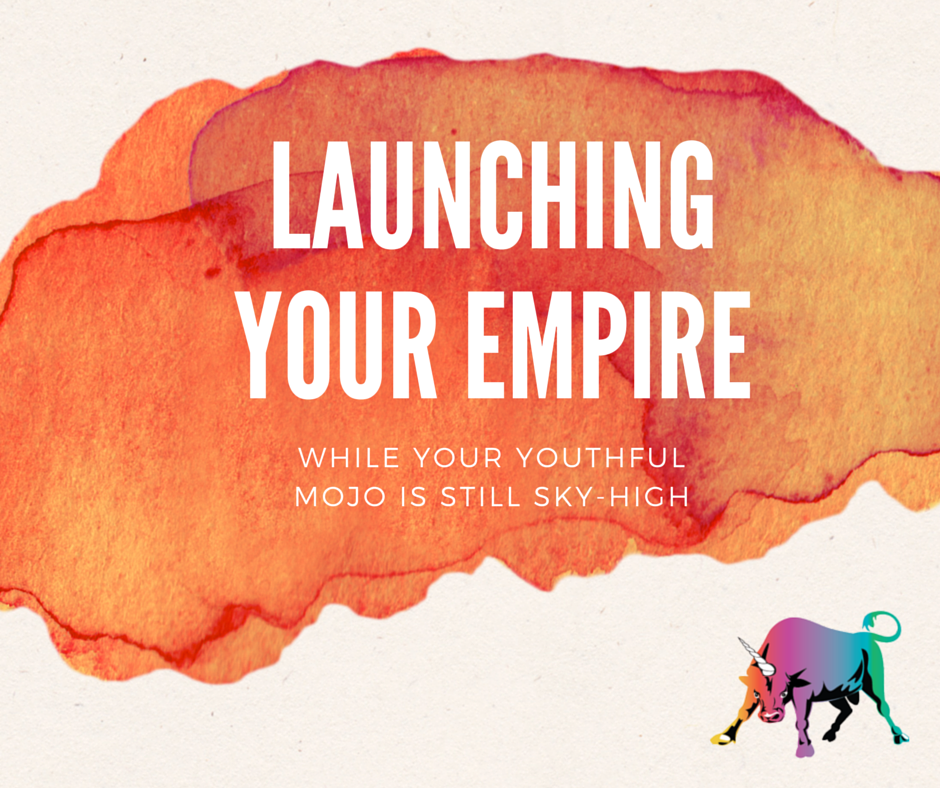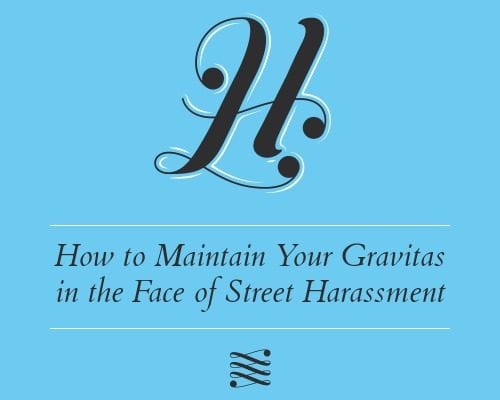
This article is more than ten years old. It originally ran on a now-defunct website called The Grindstone. This post was created entirely by humans, as AI didn’t exist back then (but also: why would you want to read something no one could be bothered to write?) For more recent posts, try here.
Hey Jen-
As I’m sure you’re probably busy with tons of more important things- in my mind you are a wise sage so I just wanted to ask you what your thoughts are on the following: I am a freelance designer (clothing) wanting to start my own clothing line. I’ve been working on it in my free time for the past 6 months but I bartend 3-4 days a week to pay bills. The good thing about bartending is that I can make anywhere from $1,500-2,000 a week and have been able to save up. The bad thing about it is the shifts run anywhere from 12-15 hours a day and I’m so drained I have no energy to put into my line or anything else. I am emotionally, mentally and physically drained.
I know in your blog you’ve talked about working hard now and saving for the future but I’ve come to a point where I just want to quit so I can devote 100 percent of my time to my line and design things. My job is not too keen on schedule requests so asking for fewer shifts really isn’t a viable option.
I’ve saved $54,000 so far and my expenses come up to about 3k a month. So in theory, I should be okay for about a year and change. My question is when should I quit/should I quit/what would you do? I’m scared. I’ve had a job since I was sixteen, so no money coming in is very scary. But everyday I go to work I die a little inside. I don’t want to act impulsively and make a stupid decision.
Thanks for the compliments! And also: amazing job saving up your bartending money!

I’m sorry, though, that your job is driving little drink umbrellas deep into your soul. “Emotionally, mentally, and physically drained” people can’t take over the world. (See Bullish: How to Avoid Burnout and Not Become a Brain-Eating Zombie, Part I and Part II). So, now is an excellent time to ask these questions, and question the validity of the fear that is keeping you in place.
I’ve written before that an entrepreneurial drive is like a sex drive – while everyone’s a unique and special snowflake, of course, some people’s entrepreneurial libido tends to be higher when they’re young.
My colleagues regularly refer to me as “adventurous” because I go to foreign countries alone and don’t have a “steady job.” That is not adventurous; that is normal modern life. If you think a “steady job” is safer than having multiple income streams, you are greatly overestimating your company’s “obligations” towards you. (See Bullish: How to Run Your Career Like a Business.)
When I was 19 and started a company, I took risks that I probably wouldn’t take today. The threat of bankruptcy meant little to me; buying a house was many years off. I personally co-signed everything. I would drive all night for a meeting. I had nothing to lose. Succeeding seemed very life-or-death. As it turned out, I failed. The experience was not a loss; five years of full-time entrepreneurship have greatly informed these columns.
So, I’m generally prejudiced in favor of going for it. But for our question writer, to me, the big questions here are:
– Could you get another similarly-paying bartending job if you needed to?
– Where does the money from your clothing line come from? Who would pay you and when?
If the answer to the first question is yes, that’s definitely a vote for quitting.
The second question deserves some thought: for anyone wanting to start a business, make sure you aren’t making decisions based on artistic expression, being able to self-identify in a new and exciting way, imagining your launch party, or other emotional concerns.
For instance, for years, I tossed around this idea I had for opening a hipster craft store: The Craftykat! Sure, I had all kinds of cool ideas (I would sell vintage record album covers and all the other old random gewgaws that Bust magazine always wants you to turn into lampshades and dirndls). But was that, exactly, a business model?

My best friend and business muse repeatedly told me, “No, Jen. No. Just no.” When I analyzed it, what I really wanted was to be the kind of person who had had the super cool idea to open a hipster craft store called The Craftykat. So, I pretty much just accomplished that by writing this paragraph. I didn’t actually want to run such a store. Nor do I even, personally, do crafts. I don’t want to breathe anything that comes out of a spray can. And actually paying the rent on a store – much less making a profit – by selling glue sticks and tiny bits of crap to non-rich people sounds like pulling teeth. From a carp. Like making rice, one grain at a time! Like a fucking financial nightmare. And as it turns out, someone else started a super cool hipster craft store with an even better name: Spacecraft! <– Update: Now out of business.
People can go very, very wrong following their passions. Most people’s passions are shockingly unlucrative and shared by far too many other people who would rather be offering the product or service themselves than buying it from you.
So, if you cannot point directly at the person or company who will pay for what you are offering, then you’re not ready.
But if you have potential clients you just need to contact, or if you’re going to sell directly at pop-up sales and on the Internet (and you can point directly at the consumers who would rationally pay what you need to charge for what it is you’re offering), then, really, when will there ever be a better time to launch?
(See also Bullish: Are You Under-Reinvesting in Your Career? and Bullish: You Can Start a Business by Tuesday.)
The question writer answered:
I could always find a bartending gig if I needed too, probably not as lucrative as my current job. To address your second question, I’d be financing my own line. I do some freelance projects here and there. I do have a target demographic already in mind and have thought about the 4 p’s in relation to them. I would initially have to set up a web site and do some fashion shows at various venues.
I’ve worked since I was 16, so multi-tasking is second nature – but most times being really awesome at one thing is tons better than half-assing two things. I’d just like to make a living off what I love doing, and give myself the chance to dedicate 100% of my time to it. I have no lofty ambitions of being a rich and famous designer. The way I figure if I go hard right now and it flops I can always change my plan of action, because I’m still relatively young, kinda. I’d just like to get a product to market and say I did it, and it sucked … or it didn’t suck.
However, given the current economy I feel like an ungrateful asshole for walking away from a job that pays more than most with graduate degrees can earn. Ugh. WWJD? or WWJDD?
WWJD! Ha. This prompted me to go Google What Would Jesus/Jen Do bracelets, most of which are pretty hideous. I’ll let you know if I launch a Bullish jewelry line.
Also, for any interested readers, the “4 P’s” are a classic alliterative recounting of components of marketing: product, price, place, and promotion (more here).
The question writer writes that “being really awesome at one thing is tons better than half-assing two things.” This is very often true (I despise convertible garments – any dress you can wear six ways looks awkward in all of them, and reversible winter coats are just unhygienic). In academia, being a deep content expert (and promising young protege) in one field is probably better than sleep-depriving yourself into a double-major-with-a-minor.

But sometimes, this isn’t true. For instance, can the two things you’re trying to do use shared resources? (For instance, hiring one office manager to run an office for two complementary businesses.) If you have two online retail shops that sell products you ship from your basement, that’s basically just one business with two different marketing arms.
Can one of the two things run on autopilot, or does one require a lot of waiting?
Do one or both things lack potential for full-time operations at this time? For instance, back when I didn’t have a lot of test prep clients and was trying to transition out of art modeling, I was killing myself trying to sell my services where I wasn’t welcome. It became apparent that it was much easier to take the low-hanging fruit of the jobs available to me and be a half-model-half-tutor for awhile. It freed up time to develop my skills; I had to wait a year or two for my students to succeed and for word to get around.
Finally, some things deserve to be half-assed. The Marines use something they call the 70% solution. From Corps Business: The 30 Management Principles of the U.S. Marines, “It’s better to decide quickly on an imperfect plan than to spend time considering every angle and roll out a perfect plan when it’s too late.” In battle, of course, indecisiveness can lead to death; speed and boldness are key. You will never have complete information, so you must make the best decisions possible with imperfect data.
Sometimes half-assing it is exactly the answer; for instance, if I were hiring a personal trainer, it wouldn’t bother me if his or her website said “Make your own free website at suchandsuch.com!” at the bottom and contained misspellings of words like “trapezius.” Just as I don’t expect my web designer to have excellent muscle tone, I don’t expect my personal trainer to have a super-professional website. Doing things just well enough to get by is sometimes the optimal choice – when placed in the context of your whole life or business. Can the question writer ethically be a half-assed bartender (and a whole-assed fashion designer)?
(See also Bullish: How to [Intelligently] Do Many Things at Once.)
Finally, a few words about fear.
I have suggested before that worst-case scenarios are rarely as bad as people imagine: naming a fear can take away its power. I once delayed for months in raising my prices. I just sort of avoided it. It made me feel icky. Finally, I tried to define why I wasn’t going ahead: I was afraid that I would tell someone my rates over the phone and it would be awkward. Seriously, “an awkward phone call” was the worst-case scenario.
More consequentially, when I was 24 I had a company fail hardcore (the office landlord sued me and locked me out of my office, causing my innocent office plants to die of dehydration). Worst-case scenario: bankruptcy, deceased ficus, knowledge and experience, the opportunity to get back up and launch something better. If it doesn’t kill you or result in jail time, you’ll recover and be more of a badass for the next several decades.
So, our question writer’s worst-case scenario is that she takes a pay cut as a bartender – a job she hates anyway?
Finally, all things have an opportunity cost. Your steady, boring-but-not-that-bad job is keeping you from starting a company. Your friend-with-benefits is keeping you from going out and finding the person who makes you feel as though you’ve known him all your life. Your pretty decent deal on an okay apartment is keeping you from running off to Australia like you’ve always wanted.
You often have to let go of good things in order to have great things.
(See Bullish Life: How to Make Better Decisions and Bullish: When to Make Massive and Ballsy Life Changes for Your Career.)
So, go forth and design!







